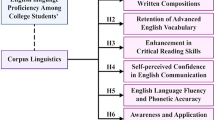Abstract
In its Language Strand, the Australian Curriculum: English (ACARA, 2012) refers to the importance of students learning to describe language as a system, paying attention to both structure (syntax) and meaning (semantics) at word, sentence and text levels. Yet English teachers in Australia remain uncertain about how to make principled connections between language as system and language as text. It is clear that the role of a linguistically informed knowledge must be addressed if teachers are to support their students to develop the ‘dynamic and evolving’ body of knowledge about language (KAL) required by the new Australian Curriculum. Focusing on persuasive texts, this paper uses the lenses provided by the Australian Curriculum: English to explore how language construes meaning at group, sentence and text level. The analysis contributes towards a multi-level language framework to help teachers to help students construct and appreciate the valued forms of argumentation required in the new Curriculum, as these draw variously on logical reasoning and emotional impact.
Similar content being viewed by others
References
Australian Curriculum Assessment and Reporting Authority (ACARA) (2012). Australian Curriculum: English. Version 3.0. Sydney: Australian Curriculum Assessment and Reporting Authority. Retrieved from http://www.australiancurriculum.edu.au/English/Curriculum/F-10.
Australian Curriculum Assessment and Reporting Authority (ACARA) (2011). National Assessment Program (NAP). Retrieved from http://www.nap.edu.au/
Bakhtin, M.M. (1953 (1986). The problem of speech genres. Translated by Vern W. McGee. In Speech Genres and other Late Essays, C. Emerson and M. Holquist (eds) (pp. 60–102). Austin, TX: University of Texas Press.
Christie, F. (1990). The changing the face of literacy. In F. Christie (Ed.), Literacy for a Changing World (pp. 1–25). Melbourne: ACER.
Christie, F. (2005) Using the functional grammar to understand children’s written texts Australian Review of Applied Linguistics S19, 9–22.
Derewianka, B. (2012). Knowledge about Language in the Australian Curriculum: English. This Issue.
Department of Education, Science and Training (DEST) (2005). Teaching Reading: Report and Recommendations. National Inquiry into the Teaching of Literacy. Canberra: Australian Government.
Green, B. (2009). English, Rhetoric, Democracy; or renewing English in Australia. English in Australia, 43 (3), pp. 35–44.
Halliday, M.A.K. (1985). An Introduction to Functional Grammar, London: Edward Arnold.
Hammond J. & Macken-Horarik, M., (2001). Teachers’ voices, teachers’ practices: Insider perspectives on literacy education. Australian Journal of Language and Literacy, 24 (2), 112–132.
Harper, H. & Rennie, J. (2009). ‘I had to go out and get myself a book on grammar’: A study of pre-service teachers’ knowledge about language. Australian Journal of Language and Literacy. 33 (1), 22–37.
Higgins, C (2008). The New Cicero in The Guardian, Wednesday 26 November.
Humphrey, S. (1996). Exploring literacy in school geography (Write it Right Resources for Literacy and Learning). Sydney: Metropolitan East Disadvantaged Schools Program.
Humphrey, S., Love, K. & Droga, L. (2011). Working grammar: An introduction for secondary teachers. Melbourne: Pearson.
Kress, G. (1985). Linguistic processes in sociocultural practice. Oxford: Oxford University Press.
Louden, W., Rohl, M., Gore, J., Greaves, D., McIntosh, A., Wright, R., Siemon, D. & House, H., (2005). Prepared to teach: An investigation into the preparation of teachers to teach literacy and numeracy. Canberra, ACT: Commonwealth of Australia.
Love, K. & Macken-Horarik (2009). Obama, Rudd and a grammar for rhetoric in the National English Curriculum. In the Proceedings of the National conference for Teachers of English and literacy, Hobart, Tasmania, July 2009. www.englishliteracyconference.com.au
Martin, J.R. (1985) Factual Writing: Exploring and challenging social reality. Victoria: Deakin University Press.
Martin & White (2005) Language of Evaluation. London: Palgrave.
Rudd, K. (2008). Apology to the Stolen Generations of Australia. Retrieved from http://www.smh.com.au/articles/2008/02/13/1202760379056.html
Sawyer, W. (2009). The National Curriculum and Enabling Creativity. English in Australia, 43 (3), 57–68.
Schleppegrell, M., (2004). The Language of Schooling: A functional Linguistics Perspective Lawrence Erlbaum Associates, Mahwah, NJ. Retrieved from TakingITGlobal web site Australia.tigweb.org
Author information
Authors and Affiliations
Rights and permissions
About this article
Cite this article
Love, K., Humphrey, S. A multi-level language toolkit for the Australian Curriculum: English. AJLL 35, 173–191 (2012). https://doi.org/10.1007/BF03651881
Published:
Issue Date:
DOI: https://doi.org/10.1007/BF03651881




